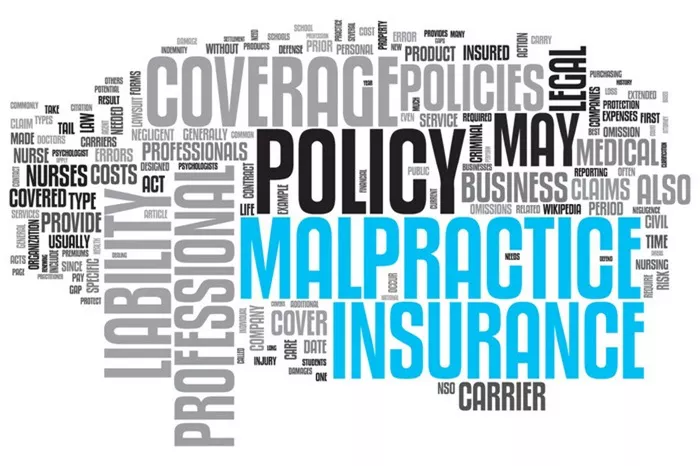In the ever-evolving landscape of professional services, having a thorough understanding of what professional insurance covers is crucial for mitigating risks and ensuring protection against potential claims. The objective of this comprehensive article, titled “What Does Professional Insurance Cover?” is to delve deeply into the various aspects and provisions of professional insurance, offering detailed insights into its coverage areas, exclusions, and essential considerations for selecting the most appropriate policy. By grasping these elements, professionals across different fields can better safeguard their practices and navigate the complexities of potential legal challenges.
Types of Professional Insurance
1. General Liability Insurance
General liability insurance is a foundational type of coverage that offers protection against a broad spectrum of risks, including:
Bodily Injury: This coverage addresses claims related to injuries sustained by third parties either on your business premises or as a direct result of your professional activities. For instance, if a client is injured during a meeting at your office, this insurance can cover medical expenses and legal costs associated with the injury claim.
Property Damage: This protection is essential for covering claims related to damage caused to someone else’s property due to your business operations or negligence. If, for example, a contractor accidentally damages a client’s property while performing a service, general liability insurance would help cover the repair costs and any associated legal expenses.
Personal Injury: This aspect of general liability insurance includes coverage for claims related to non-physical harm such as defamation, slander, or false advertising. This is crucial for businesses that could potentially face legal action over allegations of harm to an individual’s reputation or false statements made in advertising materials.
While general liability insurance is indispensable for all businesses, it is not tailored specifically to the unique risks associated with professional errors or omissions.
2. Professional Liability Insurance
Professional liability insurance, commonly referred to as errors and omissions (E&O) insurance, is specifically designed to cover:
Negligence Claims: This insurance protects professionals against allegations that their actions or advice fell below the expected standards, resulting in financial harm to clients. For instance, a financial advisor who provides incorrect investment advice leading to a client’s loss would be covered under this policy.
Errors and Omissions: This aspect provides coverage for mistakes or oversights in professional services that lead to a client suffering a financial loss. If an architect makes an error in the design of a building that results in structural issues, E&O insurance would cover the associated costs.
Misrepresentation: This coverage protects against claims alleging that you misrepresented your qualifications, services, or expertise. For example, if a client believes that you overstated your capabilities in a professional capacity and suffered damages as a result, this insurance would cover the legal and financial repercussions.
Professional liability insurance is indispensable for those in professions where the quality and accuracy of services provided are critically scrutinized.
3. Errors and Omissions Insurance
Errors and omissions (E&O) insurance is a specific form of professional liability insurance that focuses on:
Mistakes in Service Delivery: This insurance covers claims resulting from errors or omissions in the services you provide, such as incorrect advice or failure to meet client expectations. For example, if a software developer’s code causes a system failure, E&O insurance can cover the costs associated with fixing the issue and any resultant claims.
Failure to Perform: It also protects against claims that you did not deliver the services as agreed, which might include failing to complete a project on time or not meeting the agreed specifications. This is essential for professionals who have contractual obligations to their clients.
Negligent Actions: This coverage addresses allegations of negligence in the performance of your professional duties, even if the actions were unintentional. If a consultant’s oversight leads to a client’s financial loss, E&O insurance will cover the related claims and legal costs.
E&O insurance is particularly critical for professionals where the accuracy of their work and adherence to client expectations are paramount.
Coverage Areas in Professional Insurance
1. Legal Defense Costs
Professional insurance generally provides coverage for:
Attorney Fees: This includes the costs associated with hiring legal representation to defend against claims. For instance, if you are sued for professional negligence, your insurance will cover the legal fees incurred during the defense process.
Court Costs: These are expenses related to the legal proceedings, including filing fees, administrative costs, and costs associated with court hearings. Coverage ensures that you do not bear these financial burdens alone.
Investigation Costs: This includes expenses for investigating the claim, which may involve hiring expert witnesses or conducting forensic analysis. Proper coverage ensures that the investigation costs are managed without impacting your financial stability.
Legal defense costs can be substantial, and having insurance that covers these expenses is essential to protecting your financial well-being.
2. Settlements and Judgments
In the event of a claim resulting in:
Settlement Payments: Professional insurance can cover the amount paid to settle the claim with the claimant, which helps to mitigate the financial impact on your practice or business.
Court Judgments: This coverage includes financial compensation awarded by the court in a lawsuit, helping you manage the financial repercussions of a legal judgment against you.
Compensatory Damages: These are damages awarded to the claimant to compensate for their losses. Professional insurance can cover these costs, preventing significant financial strain on your practice.
This aspect of coverage is crucial for protecting against potentially devastating financial outcomes resulting from legal claims.
3. Claims of Negligence
Professional insurance covers:
Errors in Judgment: Protection against claims alleging that your professional judgment was flawed, resulting in client harm. For example, if a financial advisor’s poor investment advice leads to a client’s loss, this insurance would cover the resulting claim.
Failure to Meet Standards: Coverage for claims related to not meeting industry or professional standards, such as failing to provide services at the level expected by professional guidelines.
Breach of Duty: Protection against allegations of failing to fulfill your professional obligations, which could include not meeting the terms of a professional agreement or contract.
Negligence coverage is vital for addressing the inherent risks in providing professional services.
See Also: Best Liability Insurance for Psychologists
4. Breach of Contract
If a client alleges:
Failure to Perform: Coverage for claims that you did not meet the terms of a contract or agreement, which could include failing to deliver promised services or meet agreed deadlines.
Non-Compliance: Protection for claims related to failing to comply with contractual obligations, such as not adhering to the terms outlined in a service agreement.
Contractual Disputes: Coverage for disputes arising from contract terms and execution, helping to manage the legal and financial consequences of contractual disagreements.
Breach of contract coverage is important for managing risks associated with contractual obligations.
5. Misrepresentation
Professional insurance covers:
False Claims: Protection if clients claim that you misrepresented your services or qualifications, which could include claims related to overstating your capabilities or making misleading statements.
Deceptive Practices: Coverage for claims related to deceptive marketing or misleading statements made about your services, ensuring you are protected against allegations of fraud.
Unfulfilled Promises: Protection against claims that you failed to deliver on promises made to clients, which could include failing to meet specific expectations outlined in agreements.
Misrepresentation coverage helps address issues where the accuracy and integrity of your professional representations are questioned.
Exclusions in Professional Insurance
1. Intentional Misconduct
Professional insurance generally excludes:
Fraudulent Actions: Claims arising from deliberate fraud or deceit are not covered, ensuring that insurance is not used to address intentional wrongdoing.
Criminal Activities: Coverage does not extend to claims related to criminal conduct, including activities that violate the law.
Willful Negligence: Protection is not provided for intentional wrongdoing or gross negligence, which involves deliberate actions or extreme carelessness.
These exclusions are in place to prevent the misuse of insurance for deliberate or illegal actions.
2. Employee Actions
Professional insurance typically does not cover:
Employment Practices: Issues such as harassment, discrimination, or wrongful termination are usually not included, as these are addressed through employment practices liability insurance (EPLI).
Employee Misconduct: Claims arising from actions of employees that are not directly related to professional services are not covered under professional liability insurance.
Employment-related issues are generally covered by separate policies designed for such risks.
3. Criminal Acts
Coverage does not extend to:
Illegal Activities: Claims resulting from criminal acts are excluded from professional insurance, as these are considered outside the scope of professional liability.
Regulatory Violations: Violations of laws or regulations are not covered, which means that any legal breaches or regulatory infractions fall outside of the insurance coverage.
Criminal acts and regulatory violations are beyond the protection of professional insurance policies.
4. Prior Acts
Professional insurance may exclude:
Pre-existing Issues: Claims related to incidents that occurred before the policy period are typically excluded. This means that any known issues before obtaining insurance are not covered.
Known Claims: Issues known prior to obtaining the insurance are usually not covered, highlighting the importance of disclosing any pre-existing conditions or claims.
Understanding the retroactive coverage limits of your policy helps ensure that past incidents are appropriately managed.
Conclusion
In summary, understanding “What Does Professional Insurance Cover?” is essential for professionals seeking to protect themselves against a range of risks associated with their services. From general liability and professional liability insurance to errors and omissions coverage, having the right insurance policy is crucial for safeguarding your career and practice against potential claims and legal challenges.





















